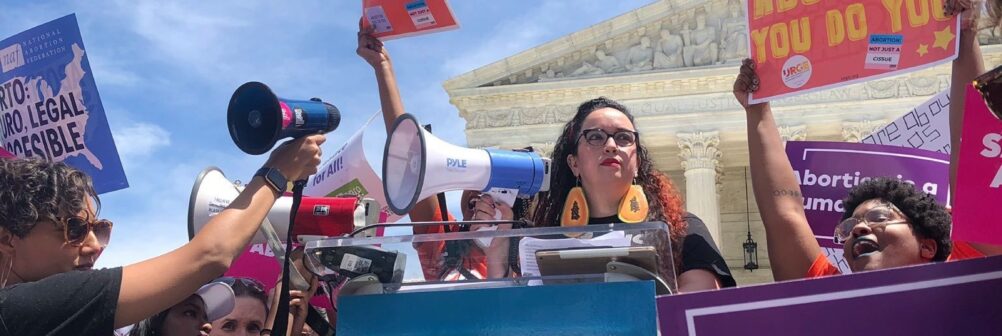Young Voters Surge at the Polls Across the Nation
Voters 18-29 tip the scales in a year of narrow marginsNovember 7, 2018
Fatimah Gifford
fgifford@urge.org
(202) 365-1772
WASHINGTON Young people (18-29) voted in record numbers in the 2018 midterms, and tipped the scales in crucial races in a year of narrow margins, according to a new report from URGE: Unite for Reproductive & Gender Equity, “The Young People’s Election: Casting Votes. Building Power.”
Highlights include:
-
Young people registered to vote at record rates with early voting for young adults surging 188 percent since the 2014 midterm elections.
-
Nationally, voters aged 18 to 39 tripled their early voting rate since 2014; in Texas and Georgia, the number of early young voters doubled from 2014.
-
One-third (31%) of young people (18-29) turned out to vote in the 2018 midterm election, up from 21% in 2014, representing the highest level of participation among youth in the past quarter-century.
“The 2018 midterm election victory belongs to the organizers- to the young people and people of color who, through grit, gumption, and guts, registered and turned out young and new voters in record numbers across the nation,” said Kimberly Inez McGuire, executive director of URGE. McGuire continued. “Youth organizers with URGE and our allies knocked on doors and sent texts until our fingers were numb. And as a result, and despite rampant voter suppression, the votes of young people undoubtedly determined the outcome of races across the country.”
Young people organized, ran campaigns, and ran for office, and the newest class of elected officials broke barriers around race, gender, and age:
-
Over 100 women will be members of the U.S. House of Representatives in the 116th Congress with over 34 of those being women of color.
-
Kalan Haywood, a 19-year-old Black man, became the youngest state legislator in the U.S. after winning a seat in the Wisconsin State Assembly.
-
Alexandria Ocasio-Cortez (NY) and Abby Finkenauer (IA), at 29, became the youngest two women elected to Congress.
-
Sylvia Garcia and Veronica Escobar became the first Latina Congresswomen from Texas.
-
Healthcare rights supporter Laura Kelly was elected governor of Kansas.
The election was marked by several consequential ballot initiatives. Oregon voters defeated Measure 106, rejecting the proposal to ban insurance coverage for abortion. Florida voters restored voting rights to people with prior felony convictions. Nebraska, Idaho, and Utah voted to expand Medicaid, giving more young low-income people access to health coverage. In Alabama and West Virginia, voters passed measures to strip the right to abortion from state constitutions. As a result, West Virginians will lose abortion coverage they currently have.
“Our hearts go out to the West Virginians and Alabamians who today woke up with fewer rights than they had yesterday,” McGuire continued. “But context is critical: abortion opponents thought it would be easy to pick on these states, and they got the fight of their lives. In Alabama alone, URGE talked to 54,795 voters about the harms of Amendment 2. We’re proud of the ground we gained to end abortion stigma in Alabama, and are committed to defending safe abortion care across the South. We are not giving up on any of our communities and are here to work with youth and our allies to build power across the country.”
Background:
URGE: Unite for Reproductive & Gender Equity is the only national, multi-racial reproductive justice organization centering the leadership of young people. URGE envisions a world where all people have agency over our own bodies and relationships and the power, knowledge, and tools to exercise that agency. We’re making that vision a reality by engaging young people in creating and leading the way to sexual and reproductive justice, with civic engagement as a core strategy. We inspire youth organizers to discover their own strength and transform it into leadership. Learn more at URGE.org.

